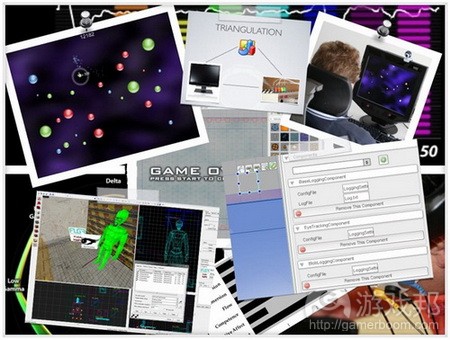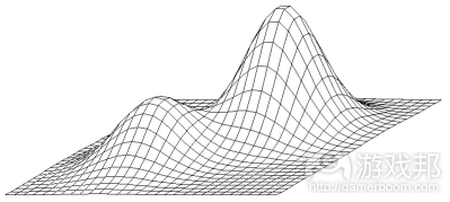避免参数崇拜主义 合理结合直觉判断
我之前曾简要谈到参数崇拜主义及其如何主宰游戏设计,以及我们需要注意什么。
过去大家根据直觉反应设计游戏。注意我并没有说这是“美好往日”,只是陈述实际情况。若你想要获得反馈信息,最好进行游戏测试,观察玩家如何与控制装置斗争,或如何顺利通过你认为困难的部分。然后进行内容更新。
后来随着电脑开始连网并逐渐变得更加强大,我们开始记录有关玩家体验情况的参数,将其重新运用至游戏设计中。我们将大量数据植入数据库,然后在数据中寻找线索,获悉如何优化某些游戏内容,及游戏是否“有趣”或“ARPU”情况。过去这发生在开发过程中,现在很多游戏都连网,这通常在我们发行游戏后进行,我们不断基于游戏发行后的相关参数更新内容。
参数和封闭反馈循环从理论角度看效果非常显著,但和其他工具一样,它们也会受到误用。就向完全基于直觉设计游戏(游戏邦注:未将此直觉同控制装置操作者的实际情况联系起来)非明智之举一样,盲目收集、追踪反馈数据也不是好主意。
过去我们过于注重直觉的重要性,但现在我们过于偏重参数。这就是我所谓的参数崇拜主义。
问题不是数据存在错误,问题是我们倾向收集便于获得的数据,我们崇拜这些数据,因为这是游戏设计和玩家行为的具体表现,然后我们假设自己能够从这些数据中得出合理衍生内容,让自己在设计领域更上一层楼。
但就像略知数学知识之人所说的那样,爬山方法并非优化复杂功能的合适算法,游戏设计本身就是非常复杂的功能。爬山方式的问题在于其只能看到局部极限,无法综观行业全局极限。若你盲目进行爬山算法,你最终只能置身最近山坡的最高峰,没有勇气移动,因为所有衍生内容都指向下方,游戏设计大山屹立在不远处,令人望而生畏。
我们希望结合直觉和参数。直觉让我们跳脱局部极限,其有时会让事情变得更糟,但这是找到更高峰的唯一希望。在模拟退火之类的全局优化算法中,直觉相当于升温,这样你就会在状态空间中跳跃。参数让你能够最大程度地优化这些内容,但仅有参数无法让你找到需要完善的部分,在此方面,你需要相信自己的直觉。(本文为游戏邦/gamerboom.com编译,拒绝任何不保留版权的转载,如需转载请联系:游戏邦)
Metrics Fetishism
In my recent lecture, Achievements Considered Harmful?, I ranted briefly about what I call metrics fetishism, and how’s it’s taking over game design and how we should be careful.
In the old days, people designed games by their instinct and intuition. Notice I didn’t say the “good old days”, it was just how things were done. If you wanted feedback, you’d playtest the game, and watch the players struggle with the controls, or waltz through some section you thought was hard, or whatever. Then you’d iterate.
More recently, as computers got networked and more powerful, we started recording metrics about how players played our games, and feeding that back into the design process. We dump a lot of information to a database, and then we mine that information for clues about how to optimize certain aspects of our games, whether it’s “fun” or “ARPU” or whatever. This happens during development, and now that a lot of games are online, it happens after we ship, with the design being constantly iterated based on metrics gathered live after launch.
Now, metrics and closed feedback loops are great in the abstract, but like any tool, they can be misused. Just as it’s usually a bad idea to design a game based totally on your intuition without grounding that intuition in the cold hard reality of another human being touching the controls, it’s also bad to blindly gather and follow metrics data.
In the old days, we erred too far on the intuition side of the equation, but now I fear we’re erring too far on the metrics side of the equation. This is what I call metrics fetishism.
The problem is not that the data is wrong[1], the problem is that we tend to gather the data that is convenient to gather, we worship that data because it is at least some concrete port in the storm of game design and player behavior, and then we assume we can take a reasonable derivative from that data and hill-climb to a better place in design-space.
But, as anybody who knows any math can tell you, hill-climbing is not a very good algorithm for optimizing complex functions, and game design is a very complex function indeed. The problem with hill-climbing is it can only see local maxima, it doesn’t have any visibility into where the global maxima lie in the space. If you blindly hill-climb, you will end up at the top of the nearest hill, terrified to move because all derivatives point down, while the giant mountain of game design awesomeness is sitting right over there.
We really want a mix of intuition and metrics. The intuition gets you out of local maxima, and yes, it sometimes makes things worse for a bit, but it’s our only hope for finding higher hills. In a globally optimizing algorithm like simulated annealing, the intuition is the equivalent of turning up the temperature so you jump around in state space. The metrics allow you to polish those new points to perfection, but metrics alone won’t find points worth polishing…you need to trust your intuition for that. (Source:chrishecker)
上一篇:简述编撰优秀游戏设计文件的方法









































 闽公网安备35020302001549号
闽公网安备35020302001549号